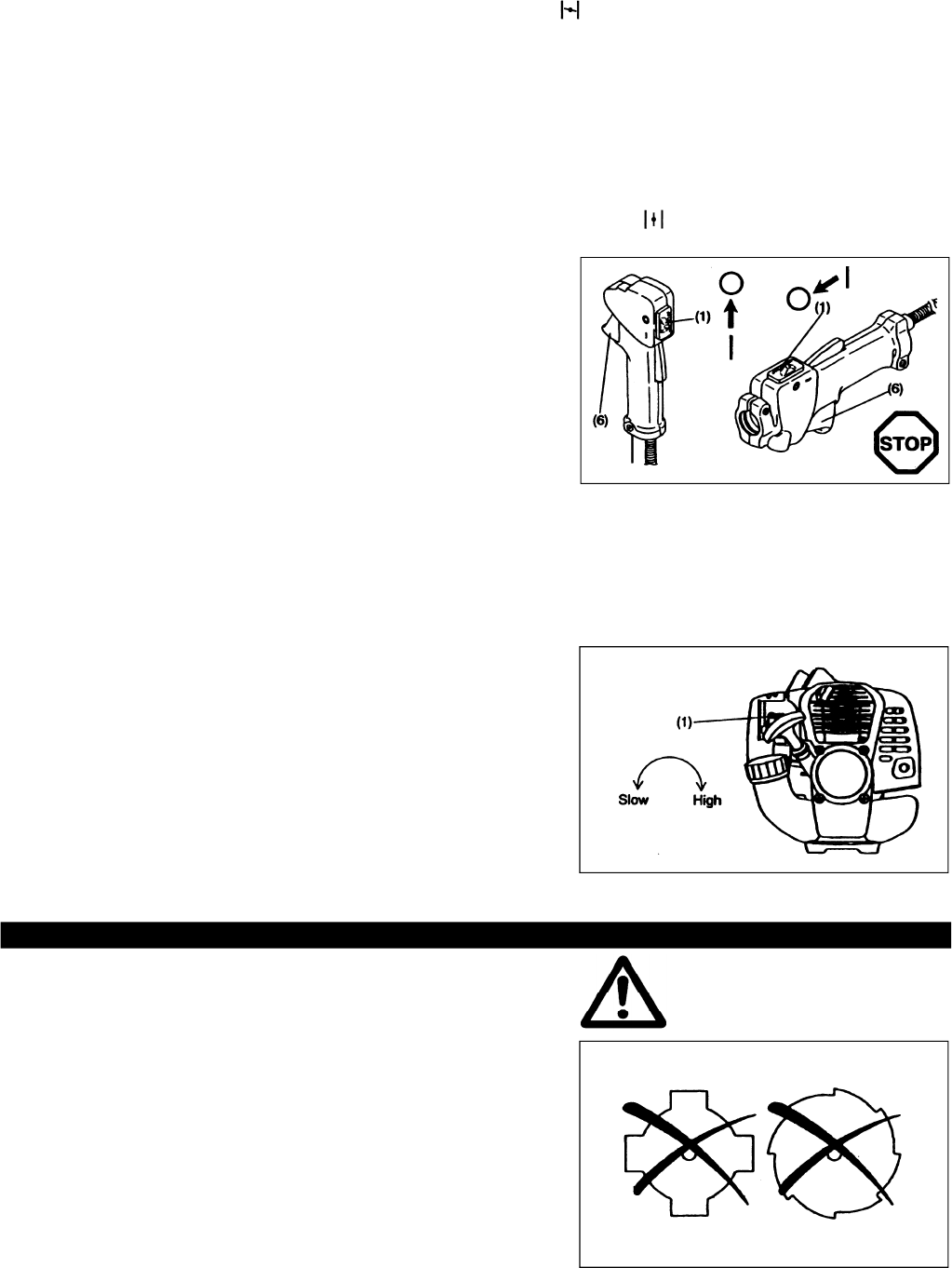
14
STOPPING
–Release the throttle lever (6) fully, and when the engine rpm has lowered,
push the I-O switch (1) to “O”፧position the engine will now stop.
–Be aware that the cutting head may not stop immediately and allow it to slow
down fully.
ADJUSTMENT OF LOW-SPEED ROTATION (IDLING)
The cutter blade or the nylon cutting head should not run when the control lever is fully released. If necessary, adjust the idle rpm using the idle
adjusting screw.
Checking the Idling speed
–Idle speed should be set to 2,600 min
-1
.
If necessary correct it by means of the idle screw (the blade or the nylon
cutting head must not turn when the engine is on idle).
Screwing in the screw (1) will cause an increase in the engine speed,
whereas backing off the screw will reduce the engine speed.
RESHARPENING THE CUTTING TOOL
CAUTION : The cutting tools mentioned below must only be resharpened by an
authorized facility. Manual resharpening will result in imbalances of
the cutting tool causing vibrations and damage to the equipment.
– cutter blade (star blade (4 teeth), eddy blade (8 teeth))
–Run the engine for approximately one minute at a moderate speed before applying full throttle.
Note: – If the starter handle is pulled repeatedly when the choke button remains at “ ” position, the engine will not start easily due to
excessive fuel intake.
– In case of excessive fuel intake, remove the spark plug and pull the starter handle slowly to remove excess fuel. Also,dry the
electrode section of the spark plug.
Caution during operation:
If the throttle lever is opened fully in a no-load operation, the engine rotation is increased to 10,000 min
-1
or more. Never operate the engine at a
higher speed than required and at an approximate speed of 6,000 - 8,000
min
-1
.
Starting the warm engine
–Same as adove, except without moving the choke lever (choke button remains in the position “ ” ).
An expert resharpening and balancing service is provided by Authorized Service
Agents.
NOTE : To increase the service life of the cutter blade (star blade, eddy blade) it
may be turned over once, until both cutting edges have become blunt.


















